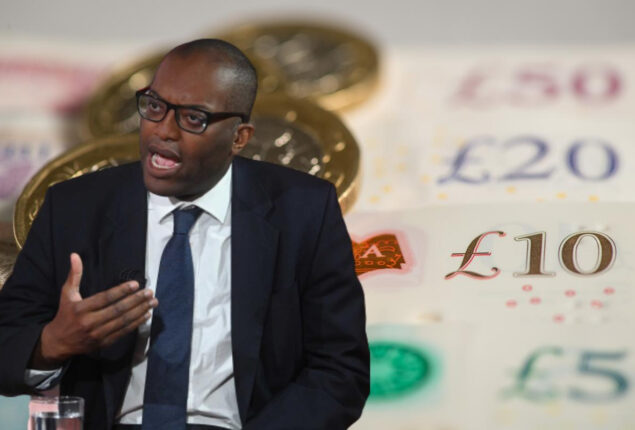Building collapse in Kenya Kiambu, rescue operations are underway
In Kiambu, central Kenya, a six-story structure fell, leaving three people dead...

Kwasi Kwarteng is under pressure
The government’s stated position is that it makes no comments on market trends. The pound hit new lows against the dollar in early Asian trade and then plunged to all-time lows against the dollar, below $1.04, in early market activity, continuing the chancellor’s baptism of fire following his fiscal speech.
Whatever is said in public, the administration will be quite concerned upon waking up to record lows and, in particular, the rise in UK government borrowing costs.
On Monday morning, borrowing costs rose to their highest levels since August 2008. For borrowing over two and five years, the effective interest rate was 4.5%.
The changes are a result of a combination of higher interest rates for larger borrowings in Britain and the Bank of England’s anticipated rate hikes.
Effectively, borrowers of fixed-term loans from households and businesses will be charged these rates. Tax reductions should help to tame the recession, but rate increases that happen too quickly could make things worse.
The fact that these borrowing rates are rising at the same time that the value of the pound has plummeted significantly is an unusual and unsettling development.
On Friday and again on Monday morning, the value of the pound against the dollar dropped considerably. One in four times, according to some financial markets, a pound will be worth less than a dollar. In terms of the dollar, the sterling is practically trading at its lowest level ever.
February 1985 is the last time the value of the pound came close to $1.05. When the pound fell back then, the official message from Downing Street was that the government was unconcerned about it and that the major causes were a strong dollar and speculation.
Privately, documents from that era show Mrs. Thatcher pleading with the Treasury to construct a trap for individuals betting against the pound and asking President Reagan for clarification. The Bank of England eventually increased interest rates to safeguard the value of the pound.
Sterling has been weaker than other major currencies like the euro while the dollar has been strong due to the Federal Reserve’s relentless interest rate hikes. Some economists and traders believe that in order to boost confidence, the government or the Bank of England may need to take some kind of action.
Catch all the International News, Breaking News Event and Latest News Updates on The BOL News
Download The BOL News App to get the Daily News Update & Follow us on Google News.